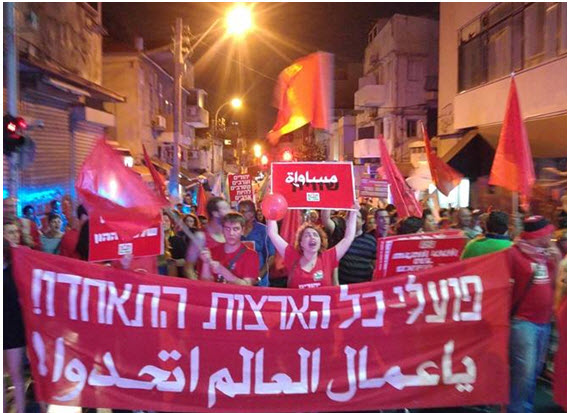Israelis are working harder for less money, a report released to mark May Day revealed Sunday, May 1, a trend which is liable to lead to an entire generation of less-educated, lower-income workers. The Annual Income Distribution report issued by the Adva Center, an Israeli NGO, notes that 40% of employees hired in 2015 earned only NIS 4,854 per month (about $1,350), just half the national average.
The researchers who conducted the annual study for 2016, Dr. Shlomo Swirsky, Dr. Etty Konor-Atias, Dr. Noga Dogan-Buzaglo, and Dr. Rotem Zelinger, explained that the findings reflect a 30-year trend based in “the policy of assisting employers by lowering the cost of labor. This policy, which has been in effect at least since the Emergency Stabilization Program in 1985, has been a ‘success story.’ The cost of labor has indeed decreased; however, this occurred at the expense of the economy as a whole,” as was reported in Zo Haderech, the Hebrew-language weekly newspaper of the Communist Party of Israel (CPI).
Meanwhile, Israel is one of the top capitalist OECD countries to employ workers at the minimum wage, reflecting what the researchers call a “minimum investment in workers – in professional training, in working conditions, in mechanization –- and from this, productivity has dropped.” 36% of women in the workplace are low-income earners, despite being involved in the workforce more than ever before. Part of the problem is the years of investment, time, and money required for sufficient training for high-earning jobs.
Overall, workers in Israel only earn about 57% of the GNP – and the distribution of wages is characterized by wide socioeconomic gaps. Between 2007 and 2015, average income for Israel’s top earners grew by 7% from NIS130,600 ($34,773) to NIS 139,500 ($37,181) per month, while during the same period of time the average salary in the economy as a whole hardly changed. In 2015, the income of the top 1% amounted to 13% of all earned income. At the top of the top, Tel Aviv’s highest-paid corporate 100 earned, on the average, NIS 5.1 million shekel ($1.3 million) per year, 44 times the national average of NIS 9,592 shekel ($2,565) a month and 91 times the minimum wage of 4,650 ($1,243) per month.
According to Adva report: “After three decades of lowering the cost of labor, it is time to change direction. Increasing productivity in Israel involves increasing investment in the real economy (rather than, for example, in financial products), and in achieving a regional political solution. But it also requires transitioning to a more generous and egalitarian wage policy, on the one hand, and increasing the share of the state in financing social services, including the education and training of workers, on the other.”



